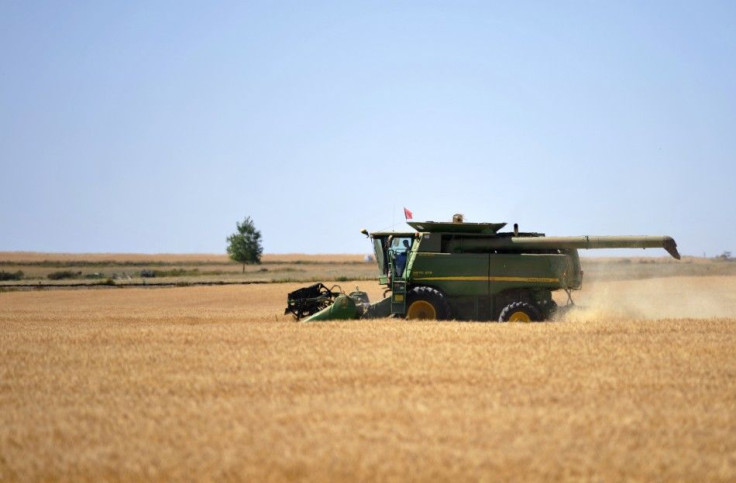Dow's New Ad Wants You To Know: 2,4-D Corn Is Necessary To Feed The World [VIDEO]

Monsanto's Roundup Ready weed-killing products may continue to lose their potency in the face of a growing epidemic of Roundup-resistant weeds but, according to a new video, industrial-scale farmers need not fear: Dow AgroSciences has come to the rescue.
That's what the company has pitched in a new video touting the benefits of its new genetically engineered Enlist corn, which is currently under review by the U.S. Department of Agriculture for regulatory approval. Dow's corn has been engineered to be resistant to both Roundup (generically known as glyphosate) and another older herbicide known as 2, 4-D, a combination the company claims will combat the so-called superweeds that have become resistant to Roundup after decades of exposure.
At least, that's what Dow is selling in its promotional video, which seems to be based on the premise that the herbicide-resistance problem created by genetically modified industrial agriculture can be solved only by the introduction of an intensified breed of genetically modified products.
The pitch essentially focuses on one idea -- Big Agriculture needs to keep doing what it's done for years, or the world will starve. It even launches the video with that basic idea, informing the viewer that over the next 40 years, farmers will need to produce enough food as the entire planet produced in the last 10,000 years.
An increase in human life expectancy, combined with a soaring world population, international water shortages and a globalized food industry has resulted in one primary goal among industrial agricultural companies: Reap the highest yield of crops from a harvest, no matter what it takes.
Farmers have been able to meet that goal by dousing millions of acres of fields with the glyphosate-based Roundup, killing off the unwanted weeds and bugs that tamper with crops. In the 1990s Monsanto introduced a line of genetically modified Roundup Ready seeds engineered to resist the herbicide, allowing farmers to spray their fields with the product without worrying about damaging crops.
Roundup-Resistant Weeds
Now that at least 100 varieties of weeds have developed a resistance to Roundup, agricultural biotech companies are pushing for the approval of new GMO seeds designed to withstand multiple herbicides. Enter Dow's Enlist corn.
Dow, in its promotional video, proposes that by planting corn that can resist both 2, 4-D and glyphosate, and then dousing those fields with a cocktail of both herbicides, farmers can rid their fields of pesky weeds without fear of encouraging further resistance. This is the way we can advance modern agriculture, according to Dow, insisting it is unlikely weeds will develop a similar resistance to the two herbicides because they work in fundamentally different ways to kill unwanted plants.
Of course, some scientists and public health advocates argue the opposite -- that the problem of herbicide resistance will be compounded by the introduction of 2, 4-D resistant crops to the market. That's why a coalition of more than 140 agricultural, consumer, and environmental groups recently urged USDA Secretary Tom Vilsak to reject Enlist, arguing the potential health problems connected to 2, 4-D, combined with the growing problem of herbicide resistance, could have potentially devastating environmental and public health consequences.
A January paper by Pennsylvania State University crop scientist David A. Mortenson also rejects the idea that weeds will somehow be tamed, in the long term, by the mixture of glyphosate and 2, 4-D.
In fact, Mortensen argues the introduction of Dow's Enlist corn will result in a jump in herbicide use, since the company is currently promoting an herbicide (to be used along with its corn) that mixes current doses of Roundup with an equal amount of 2, 4-D. The likelihood of weeds developing a resistance to even this super-herbicide brew is almost inevitable, according to the paper, which offers documented examples of weeds evolving to resist multiple herbicides.
So while Dow may be telling world that GMO products like its Enlist corn are the tools necessary to feed the world, it is still unclear as to whether the herbicides manufactured to drive those crops' success could ultimately impede that goal.
© Copyright IBTimes 2024. All rights reserved.





















